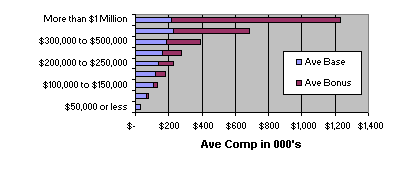In a nation wracked with unemployment and recession, Wall Street firms are still paying billions of dollars in bonuses - and they're hiring, too. The Federal Reserve recently affirmed its right to regulate executive pay, but has yet to take action on it. It should. These two facts - that bankers are earning billions while millions are unemployed - don't just represent an injustice. They are seamlessly connected, representing two aspects of the same underlying problem. When people are given incentives to "make a killing" rather than invest in the future, that's exactly what they'll do.
If the Federal Reserve fails to act decisively, Congress needs to step in. Banks, especially big banks, benefit from implicit public guarantees. And any institution that profits from publicly-provided discounted lending needs to be held to a responsible standard. The President's voice on this issue would be particularly welcome, too. His "bully pulpit" should be used to discourage bullying from bank executives who are draining the economy for their personal enrichment with government support.
The Fed, which has assigned responsibility for compensation issues to Governor Daniel K. Tarullo, understands that there is a problem. Wall Street is infused with a culture -- and a payment system -- that rewards high risk-taking and only considers a firm's short-term profits. A banker who cuts a risky deal can walk away with tens of millions of dollars, even if it collapses a couple of years down the road (and even, as we've seen, if it takes the global economy with it). This bonus structure encourages exactly the kind of dangerous and unproductive behavior that caused the last crisis, while discouraging the kind of investment we need to get the economy going again.
How distorted has the system become? Several bailed-out firms paid out more in 2008 bonuses than they made in profits. Goldman Sachs paid out more than double its profits as bonus money that year, just two short years after CEO Lloyd Blankfein received a record bonus for practices that were destined to break the economy. Paying out more in bonuses that you make as profit is not "free enterprise," it's greed.
Ben Bernanke's rebuke to banks for not lending to small businesses was certainly welcome, but the Fed has watched idly as this problem developed. There have been no problems to encourage lending to the small enterprises that are the most likely to hire. Here's where compensation comes in: What banker in his right mind would forego millions of dollars in bonus money for a short-term risky loan in order to help small employers build up their businesses over the course of years?
A career site for hedge fund employees illustrated how much compensation comes in the form of bonus, rather than base pay, at least in one corner of the financial world:

When most of your income comes from the roll of the dice, you'll go where the short-term rewards are greatest.
In order for bankers to lend the right way, they need to be compensated the right way. That means some combination of "clawbacks" - return of pay when deals collapse - and longer-term compensation based on a firm's performance. But the Fed will have to take firmer action than that implied by Governor Tarullo's recent statement: ""The Federal Reserve expects firms to make material progress this year on the matters identified as we work toward the ultimate goal of ensuring that incentive compensation programs are risk appropriate and are supported by strong corporate governance."
The European Parliament has already passed guidelines that limit the cash part of banker bonuses to 20% of the total (30% for particularly large ones), with the rest tied to the bank's longer-term performance. They've also tightened capital requirements, so that bankers aren't rewarding themselves with funds that may be needed to cover losses.
That's important, because when taxpayers bail out the big banks they're filling a void that's been left in part by these big payouts to executives. That's something that Americans should remember if they recoil in horror at the idea that this is "socialism": We covered their losses once before, and implicitly may have to do so again. And banks benefit from the discounted loans we provide them through the Federal Reserve. The top three firms paid out an estimated $30 billion in bonuses in 2009, in the midst of an economy devastated by their behavior. Those bonuses aren't "performance-based," by any rational definition of the term. They're a massive transfer of wealth from the general population to the highest 1% of earners, subsidized and enabled by government policy and conducted in a way that continues to weaken and threaten the overall economy.
Banks and financial institutions will not act to get the economy moving until the Fed acts to make compensation more rational. And with Europe moving toward a more rational system, the world's most rapacious bankers could decide to move to our more hospitable climate. The Federal Reserve, and ultimately our elected officials, have a choice: Realign bonuses so that bankers become bankers again, or let the United States become the world's haven for greed gone wild.
_______________________________________________________________
Richard (RJ) Eskow, a consultant and writer (and former insurance/finance executive), is a Senior Fellow with the Campaign for America's Future. This post was produced as part of the Curbing Wall Street project. Richard also blogs at A Night Light.
He can be reached at "rjeskow@ourfuture.org."
Website: Eskow and Associates
